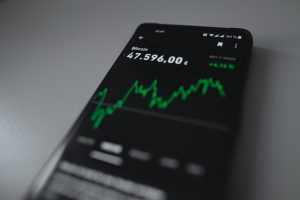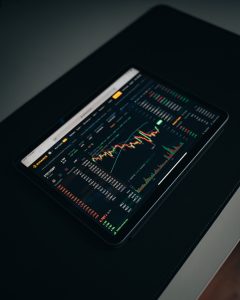The foreign exchange market, also known as forex, is the largest financial market in the world. It is a decentralized market where currencies are traded 24 hours a day, five days a week. Forex traders can make profits by buying and selling currencies based on the fluctuations in their values. However, one of the challenges that forex traders often face is high spreads. A high spread can significantly reduce a trader’s profit margin, making it more difficult to make money in the forex market. In this article, we will explore what causes high spreads in forex and how traders can manage them.
What is a spread?
A spread is the difference between the bid and ask price of a currency pair. The bid price is the price at which a trader can sell a currency, while the ask price is the price at which a trader can buy a currency. The spread is the commission that the broker charges for executing the trade. Brokers make money by charging a spread on each trade, and the size of the spread varies depending on the broker and the currency pair being traded.
Why is my spread so high forex?
There are several reasons why spreads can be high in forex. Firstly, the liquidity of a currency pair can affect its spread. A currency pair with high liquidity, such as EUR/USD, will have a lower spread because there are many buyers and sellers in the market. On the other hand, a currency pair with low liquidity, such as USD/HKD, will have a higher spread because there are fewer buyers and sellers. This is because the broker has to take on more risk when executing a trade in a less liquid market, and therefore charges a higher spread to compensate for the risk.
Secondly, the volatility of a currency pair can also affect its spread. A currency pair that is highly volatile, such as GBP/USD, will have a higher spread because there is more uncertainty in the market. This is because the broker is exposed to more risk when executing a trade in a volatile market, and therefore charges a higher spread to compensate for the risk.
Thirdly, the type of account that a trader has can affect the spread. A trader with a standard account will have a higher spread than a trader with an ECN (Electronic Communications Network) account. This is because an ECN account connects traders directly to the interbank market, where prices are more competitive, and therefore the spread is lower.
Lastly, the time of day can also affect the spread. During times of high trading activity, such as during the London and New York trading sessions, the spread is usually lower because there is more liquidity in the market. On the other hand, during times of low trading activity, such as during the Asian trading session, the spread can be higher because there are fewer buyers and sellers in the market.
How can traders manage high spreads?
There are several strategies that traders can use to manage high spreads. Firstly, traders can choose a broker that offers competitive spreads. It is important to research and compare different brokers to find one that offers low spreads and reliable execution.
Secondly, traders can choose to trade currency pairs with high liquidity and low volatility. This will help to reduce the spread and minimize the risk of price fluctuations.
Thirdly, traders can choose to trade during times of high trading activity when the spread is lower. This will help to ensure that there is sufficient liquidity in the market and reduce the risk of slippage.
Lastly, traders can use strategies such as scalping or day trading to take advantage of small price movements and reduce the impact of the spread on their profits. These strategies involve opening and closing positions within a short period of time, usually a few minutes to a few hours, to take advantage of small price movements.
In conclusion, high spreads in forex can significantly reduce a trader’s profit margin. The size of the spread is affected by several factors, including the liquidity and volatility of the currency pair, the type of account, and the time of day. Traders can manage high spreads by choosing a broker with competitive spreads, trading currency pairs with high liquidity and low volatility, trading during times of high trading activity, and using strategies such as scalping or day trading. By implementing these strategies, traders can minimize the impact of the spread on their profits and increase their chances of success in the forex market.






